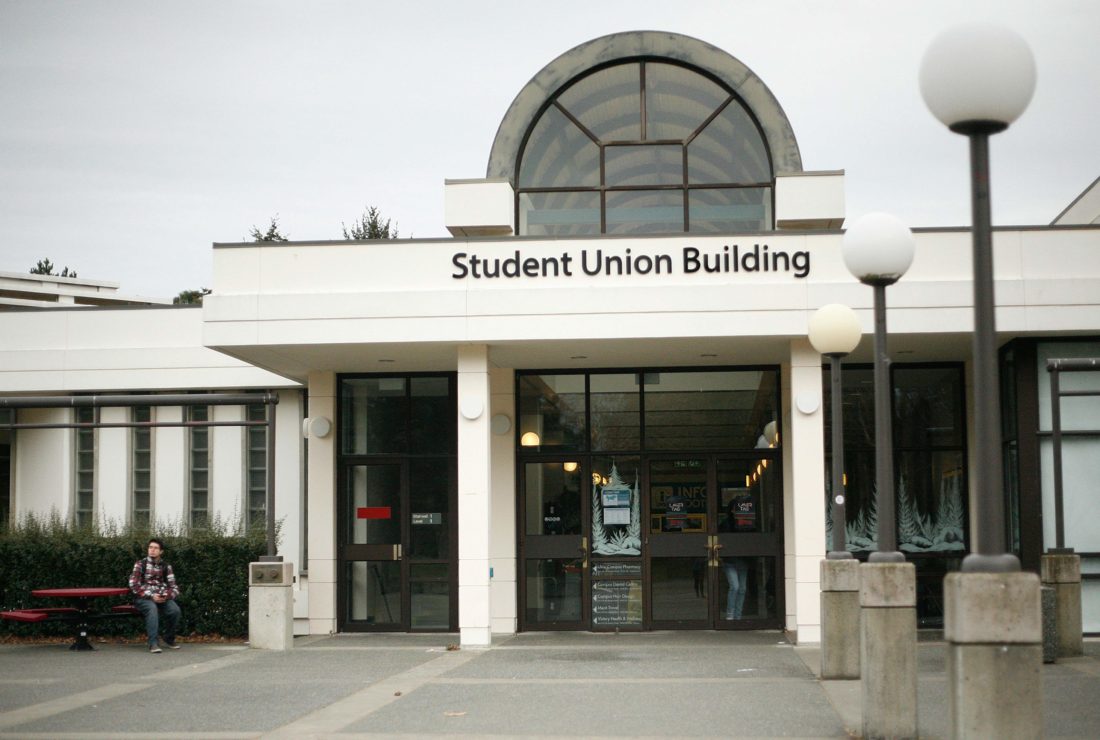At AGM, students will have chance to set referendum voting threshold

Every year, the UVSS can give students the ability to vote on referendum questions 一 most of which focus on increasing student fees. In order for the referendum to pass, however, 15 per cent of students have to vote. The UVSS is seeking to change that to five per cent.
Students will vote on this change at the Oct. 28 Annual General Meeting, held over Zoom.
The change could have a big impact on student fees in the future. Each full-time student pays $73.85 per semester, while part-time students pay $36.89 per semester. These fees can only go up or down by referendum vote. As a result of referenda, fees have increased by $8.75 since 2012.
If passed, the UVSS would need only 950 of UVic’s 19 000 undergraduate students to vote in any given referendum to increase or decrease student fees, instead of the current 2 850.
The UVSS says this change is needed because they have had trouble getting 15 per cent of students to vote. But according to their election records, the problem with meeting quorum seems to be a new phenomenon. For all referenda from 2011-19, quorum was reached in all elections except one. The average turnout was 18.9 per cent. In the spring 2020, turnout barely missed quorum at 14.8 per cent before dropping to a much lower 5.5 per cent and 6.6 per cent for the following fall and spring referenda.
Marran Dodds, the UVSS director of outreach, maintains that a lower quorum will help them pass more referenda.
“I was on the UVSS board last year, and there were a lot of really interesting and worthwhile and awesome referenda questions that were running and last year’s director of outreach pushed really hard in order to make quorum,” UVSS Director of Outreach and University Relations Marran Dodds told the Martlet. In 2020 and 2021, turnout was a low 5.9 per cent and 6.6 per cent.
Dodds understands there may be students who have concerns about the change in quorum and what that means for student participation in UVSS decisions.
“I’d say that’s a valid concern,” she said. “But I would just say whether quorum is reduced or not, it’s still up to the vote, students do have the opportunity to vote yes or no, so it’s still a democratic process.”
In B.C., student fee and tuition increases are capped out at a maximum of two per cent per year for domestic students. There is no such restriction on student society fees — the board can raise them as much as they like through referenda.
In previous years, the UVSS referenda have had drastic impacts on the student services at UVic. One passed referendum question gave the UVSS the power to increase the health plan fees by up to five per cent each year. Another passed question from 2018 allowed the UVSS to create the Peer Support Centre.
Referenda can also defund student services, however. In 2019, the UVSS proposed a referendum that would have stripped the Vancouver Island Public Interest Research Group (VIPIRG) of its funding. Although the referendum was deemed invalid, VIPIRG opted to leave the university shortly afterwards, citing issues with the UVSS board. VIPIRG provided scholarships and research opportunities to BIPOC students.
Under the BC Societies Act, non-profit societies must give members of the organization a chance to vote on important decisions proposed by the board of directors at annual general meetings. While the Societies Act says the UVSS must meet a quorum, the UVSS can change quorum to whatever percentage they desire with the passing of a bylaw amendment at their AGM.
Dodds said that other student societies in B.C. such as SFU and Camosun, already operate at a five per cent quorum for referenda. She says that the response to the proposal has been positive thus far, but looks forward to seeing student input at the AGM on Oct. 28.
“I anticipate maybe some questions during the meeting,” she said.
For more information on how to join the UVSS AGM and vote on this change, see https://uvss.ca/agm/.







